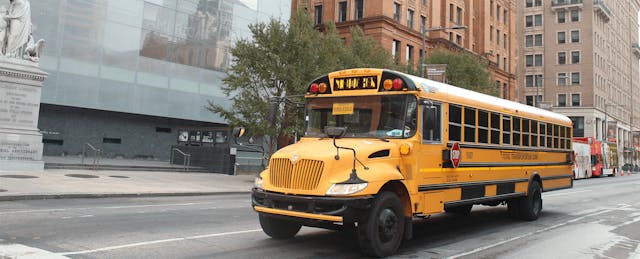Camika Royal knows the Philadelphia school system, and not just because she was a student there in her childhood. For her doctoral research at Temple University, Royal dug into the turbulent history of school reform in the city from the 1960s up to now, including reading through the minutes of every school board meeting from 1967 to 2017 and interviewing teachers and school leaders from the era.


Her takeaway: Fights over control of school leadership, including a takeover of Philadelphia schools by the state legislature in 2001, are more about politics than about improving education.
The result is the new book, “Not Paved For Us: Black Educators and Public School Reform in Philadelphia.”
“The takeaway is that the people who have power or who have money are somehow becoming richer or more powerful as a result of these reforms,” she says. “And the people who need schooling the most to make social mobility possible still get shafted, essentially.”
One observer recently called the book a cross between “The Wire” and “Abbott Elementary,” for how it humanizes the people involved while facing up to hard truths about systemic failures.
Royal welcomes the comparisons. “We don't ever need to assume that because things are hard, they are impossible, that they are dire, that there aren't people who have full lives that also have joy,” she says, referring to the folks in those popular television shows and those in under-resourced Philadelphia public schools. “I hate the genre of education media that is all doom and gloom — where the kids are scary and the teachers are tough and trying to fight the kids.”
These days Royal is an associate professor of urban education at Loyola University Maryland. And she argues that efforts at using school desegregation as a strategy to improve education for Black children have not historically served them well.
“There's this constant thing of not wanting white children to be minoritized, which I find adorable,” she says. In her own public school experience, she says she remembers being one of only two Black children in a class. “When was the conversation about, ‘We don't want Camika and Tony to be minoritized,’ right? When Black children are sent to these environments, people aren't worried about Black children being minoritized and us not seeing ourselves. There's so many things that small children are expected to be resilient [about] and to just figure it out.”
She argues that the focus of reform efforts should be on providing a consistently high quality of education, no matter which students are in the classroom. “Why are dollars associated with the presence of white children?” she asks. “Why can't good teaching, good books, all these things be okay for Black and brown students, regardless of who else attends the school?”
Royal worries that the failures of Philadelphia’s school takeover are repeating themselves in Texas, where state officials recently took over the Houston Independent School District. “It’s political wrangling all over again,” she says.
Listen to the episode on Apple Podcasts, Overcast, Spotify or wherever you get your podcasts, or use the player on this page.


